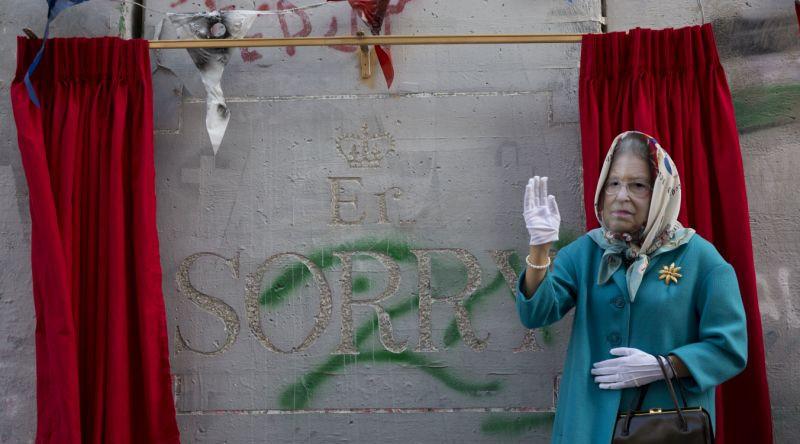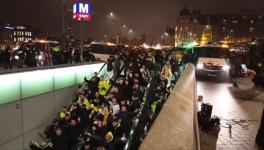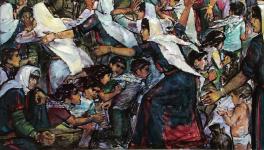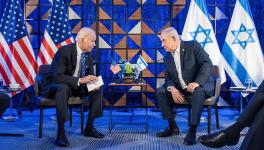Balfour Declaration: The Promise that Sowed Seeds of Discord

Palestinians across the globe are protesting on the 100th anniversary of Balfour declaration that paved way for the brutal occupation of Palestine. In occupied Palestine, people marched from the southern end of the city to the north, stopping at Israel's separation or “apartheid” wall. There, they erected an effigy of the document's author, Arthur Balfour, beating and throwing shoes at it before burning a copy of the declaration, reports TeleSUR.
The Balfour Declaration was a pledge by Britain in 1917 declaring its aim to establish "a national home for the Jewish people" in Palestine. On November 2, 1917, the declaration in form of a letter from British Foreign Secretary Arthur Balfour to the prominent British Jewish figure, Lord Rothschild, read:
His Majesty's government view with favour the establishment in Palestine of a national home for the Jewish people, and will use their best endeavours to facilitate the achievement of this object, it being clearly understood that nothing shall be done which may prejudice the civil and religious rights of existing non-Jewish communities in Palestine, or the rights and political status enjoyed by Jews in any other country.
The declaration was controversial in many aspects. According to Palestinian-American academic Edward Said it was"made by a European power … about a non-European territory … in a flat disregard of both the presence and wishes of the native majority resident in that territory”.
According to historian Jonathan SchneerBritish felt that the Jews played a vital role inthe winning the World War One, so they had to figure out how to bribe the Jews to support them. Control over Palestine was a strategic imperial interest to keep Egypt and the Suez Canal within Britain's sphere of influence. Also Britain had to side with the Zionists to rally support among Jews in the United States and Russia, hoping to encourage their governments to stay in the war until victory.
James Renton of Edge Hill University explaining on British motives, writes:
"We can boil it down to two elements of British self-interest at that time. Not an emotional interest in Zionism or a love of Jews and the Jewish plight and the desire for return of the Jews to the holy land, no... they wanted to mobilise the allies behind Britain and this idea of Jewish power in the world. They were all of the different policy elites in the war - believers in the notion that Jews who have tremendous influence in the corridors of power around the globe. If the British government appeared to support Zionism, they would win over World Jewry to their side, and all that entailed.”
Britain who was given the League of Nations mandate over Palestine after the World War one. Following World War II and a concerted terrorist campaign by Ashkenazi Jewish settler groups such as the Irgun and Stern Gang, British forces withdrew from Palestine and left it in the hands of the newly created United Nations, which favoured partition.
The British allowed the Jews to establish self-governing institutionsto prepare themselves for the establishment of a state, while the Palestinians were forbidden from doing so. This lead to the strengthening Jewish control over the Palestinian land.
According to Palestinian professor Rashid Ismail Khalidi;
For the Palestinians this statement [ Balfour Declaration] was a gun pointed directly at their heads… The issuance of the Balfour Declaration thus marked the beginning of what I would describe as a century long colonial war in Palestine supported by an array of outside powers which continues to this day.
By 1948, the Jewish settlers were at war with Palestinian locals and neighbouring Arab states, culminating in the ethnic cleansing of Palestine and the creation of the state of Israel. More than 700,000 Palestinians were expelled from their homes within Palestine's borders, an event known as the ‘Nakba.'
Get the latest reports & analysis with people's perspective on Protests, movements & deep analytical videos, discussions of the current affairs in your Telegram app. Subscribe to NewsClick's Telegram channel & get Real-Time updates on stories, as they get published on our website.























